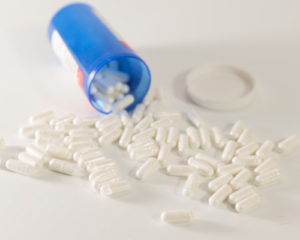Antidepressants are commonly prescribed for people who are diagnosed with different types of depression or anxiety disorders. As with most medication, there are side effects, and mirtazapine is no different. Many of the symptoms people feel are mild. Some do not experience any side effects at all. In very rare cases, some serious side effects can manifest. If the side effects you feel are truly troubling for you, contact your health care provider.
What Is Mirtazapine?
Mirtazapine is a medication used to treat depression. It works by adjusting the levels of chemicals in the brain. There are many natural neurotransmitters in the brain. Serotonin is one, and noradrenaline is another. They control mood and thinking. When someone is depressed, these chemical messengers are not as active as they should be. Mirtazapine boosts the amount of these chemicals.
What Are the Side Effects of Mirtazapine?
There are common side effects with mirtazapine. You may feel some, all, or none. They are usually mild and may go away in time. Not everyone will experience side effects. Below is a list of common side effects and how to deal with them.
Common Side Effects

- Nausea: Take the medication with food or after eating. Suck on a piece of sugarless hard candy.
- Lethargy, drowsiness: If possible, take a 30-minute nap during the day. If not possible, take a short, brisk walk. It will perk you up a little bit,
- Weight gain: Get more physical exercise as you begin to feel better. Eat smaller, healthier portions of food. Drink plenty of water every day.
- Dry mouth: Suck on a piece of sugarless hard candy when your mouth feels dry. Sip water throughout the day. Breathe through your nose and not your mouth.
- Increased appetite: Eat smaller meals throughout the day. Snack on fruit or veggies.
- Constipation: Eat food rich in fiber and drink plenty of water every day.
- Weakness: Protein-rich foods will help keep you from feeling weak. Plain sugar-free yogurt, lean meats, and fish are food sources of protein. Nuts are also a good choice.
- Dizziness: Always get up slowly from a seated position. Hold onto an armrest or handrails when going up or down a set of stairs.
- Dream disorders: Write your dreams in a journal when you wake from sleep.
- Skin rash: Consult with your doctor about any skin irritations or rashes stemming from antidepressant use.
Serious Side Effects
It is essential to know that these side effects are being provided for informational purposes. It is not known how many people have experienced them, or if you will. If, at any time, you experience any of the below symptoms, it is imperative to call your health provider.
- Suicidal thoughts or actions
- Manic episodes
- Weakened immune system, lower white blood cell count
- Serotonin syndrome
- Eye problems
- Seizures
- Severe allergic reactions
Mirtazapine Overdose
Mirtazapine should not be taken with other drugs or alcohol. Even though it is known to have low levels of toxicity, it can still be dangerous. If you were to take a dose that is much higher than prescribed, it could cause mild tachycardia (heart rate is much faster than normal) and hypertension (abnormally high blood pressure). These two symptoms are more dangerous for those who have heart-related medical issues or other medical problems.

